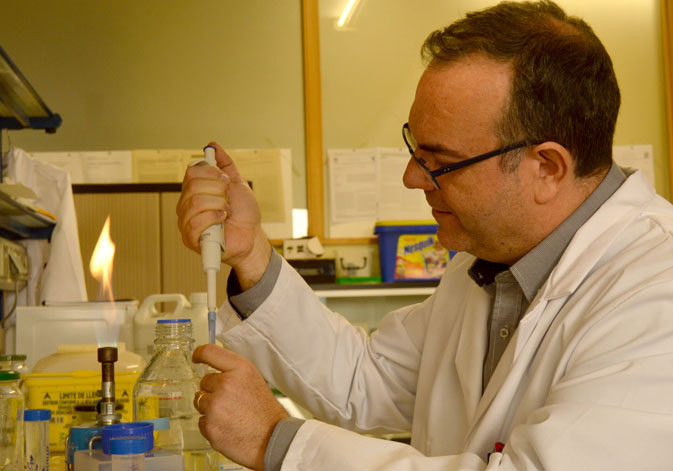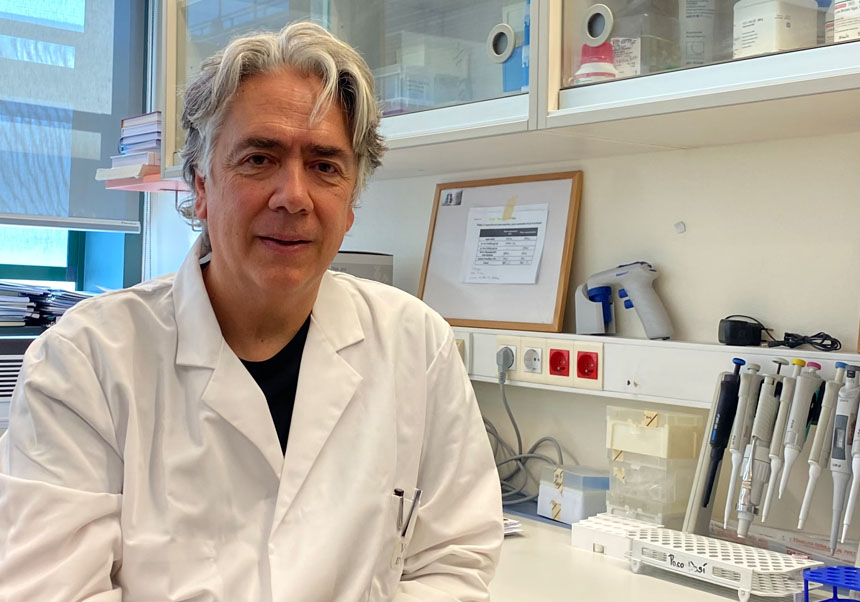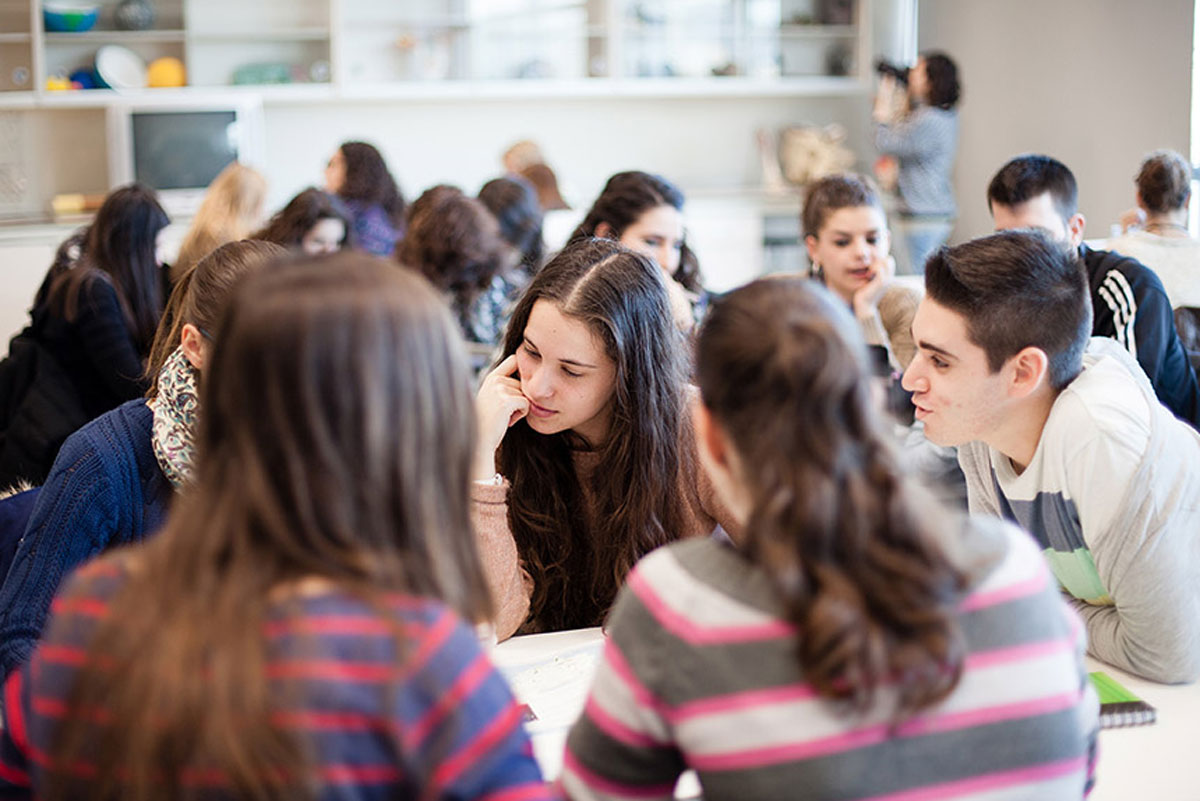Commencement of the scientific dissemination activities of the Universitat de Valencia of the 2018-2019 academic year
- Scientific Culture and Innovation Unit
- October 4th, 2018
Conferences given by university professors in institutes and cultural centres; routes through Valencia explaining mathematics from heritage; science bars; Educational workshops of Geology and Astronomy or the Cofre de la Mar. These are some of the dissemination activities that the University of Valencia puts into operation with the beginning of the 2018-2019 academic year, through the Scientific Culture and Innovation Unit, to promote scientific vocations and bring science closer to society.

So, this Friday, October 5 at noon, at the IES Benicalap in Valencia, the full professor of Microbiology at the University of Valencia Sergi Maicas gives a lecture on awareness of the use of antibiotics. The talk is part of the program Stimulating Scientific Vocations, which through lectures offered by research staff of the University reveals the main rare diseases, the biodiversity of the Mediterranean, parasites in food, the role of Iberian women, the neuroscience foundations of love, or research in Antarctica, among other topics. The conferences bring science to Valencian secondary school students, and parents’ associations and other entities. The following days there are more conferences planned.
Sergi Maicas will explain that after almost a century enjoying the action of antibiotics, society finds that these molecules are losing effectiveness. “Its use, sometimes inappropriate, both to treat infections and less altruistic activities such as cattle fattening, accelerates the spread of resistance among microorganisms”, said the expert, who stresses that awareness in society must be raised on this situation, new families of antibiotics must be discovered and their consumption reduced. The conference introduces the One Health concept, promoted by the World Health Organisation, to achieve better public health results.
Another scientific dissemination activity that begins this month are the mathematical routes, educational and informative activities aimed at secondary school students, organised in collaboration with the Mathematics Education Society of the Valencian Community Al-Klawarizmi, and which consist of scientific itineraries where the Valencia environment is used as a resource for teaching and learning this discipline. Last year, between February and June, around 3,500 people from 63 institutes participated in this activity.
This course, until June 2019, is foreseen to involve more than 5,000 people. The Serranos Towers, the Botanical Garden, the Oceanographic, the City of Arts and Sciences, La Nau of the University of Valencia or the Colón Market are some of the spaces used for these routes. The first route planned for this course is October 30.
Activities in the Espai Ciència
Another activity to bring science closer to the general public are science bars, within the Converses en l’Espai Ciència. This past Wednesday, October 3, the first one took place, entitled Rare diseases, by Lluís Montoliu, researcher and specialist in albinism of the National Centre of Biotechnology of Madrid (CSIC). The science bars are a dialogue between citizens and specialists in a relaxed atmosphere such as a cafeteria, where the public asks about the subject and the scientific news of this area and the specialist shares their knowledge. These activities take place at the October Centre for Contemporary Culture of Valencia.
Also this Thursday, October 18, will start the cycle Els Dijous de Frankenstein (‘Frankenstein’s Thursdays’), formed by a film series and another one of conferences in homage to Mary Shelley and Dr. Frankenstein in the bicentennial of the creature, within the same Espai Ciència.
Science workshops
The observation of the Sun with a telescope and the knowledge of the celestial bodies of the Universe; to look with the microscope paleontological elements and then appreciate them in the Geology Museum; or to identify minerals from their properties (colour, magnetism, brightness or hardness). These are some of the actions included in the science workshops, an action that works on demand and that allows secondary school students to carry out different activities (experiments, demonstrations, examinations, use of scientific instruments) in the facilities of the University of Valencia.
Doctoral Theses and Scientific Dissemination Award
Also, among the activities that will take place this October there is the I Conference of Dissemination of Doctoral Theses, of which a first selection has already been made on 131 works presented, where the 21 selected people should read in 3 minutes their thesis next Friday, October 19. The three awards are a stay at Harvard University with a grant of € 2,000, and two awards of € 500 and € 300. In addition, at the beginning of November will be the resolution of the European Scientific Dissemination Award «General Study», will take place convened by the City Council of Alzira and the University of Valencia in collaboration with Edicions Bromera, and endowed with € 12,000.
These activities (Mathematical Routes, Stimulating Scientific Vocations, Geology, Astronomy and Mathematics workshops, morning sessions and science bars), are part of the annual plan of activities of the Scientific Culture and Innovation Unit of the University of Valencia, and the project has been funded with € 12,000 by the Spanish Foundation for Science and Technology (FECyT) of the Ministry of Science, Innovation and Universities.
More information on these activities:
Mathematics Routes (schedule and registration): http://ir.uv.es/F5K02Iu
Stimulating Scientific Vocations (list of conferences and application): http://ir.uv.es/6cNzdBc
Workshops (information and registration): http://ir.uv.es/x72dJGQ

















